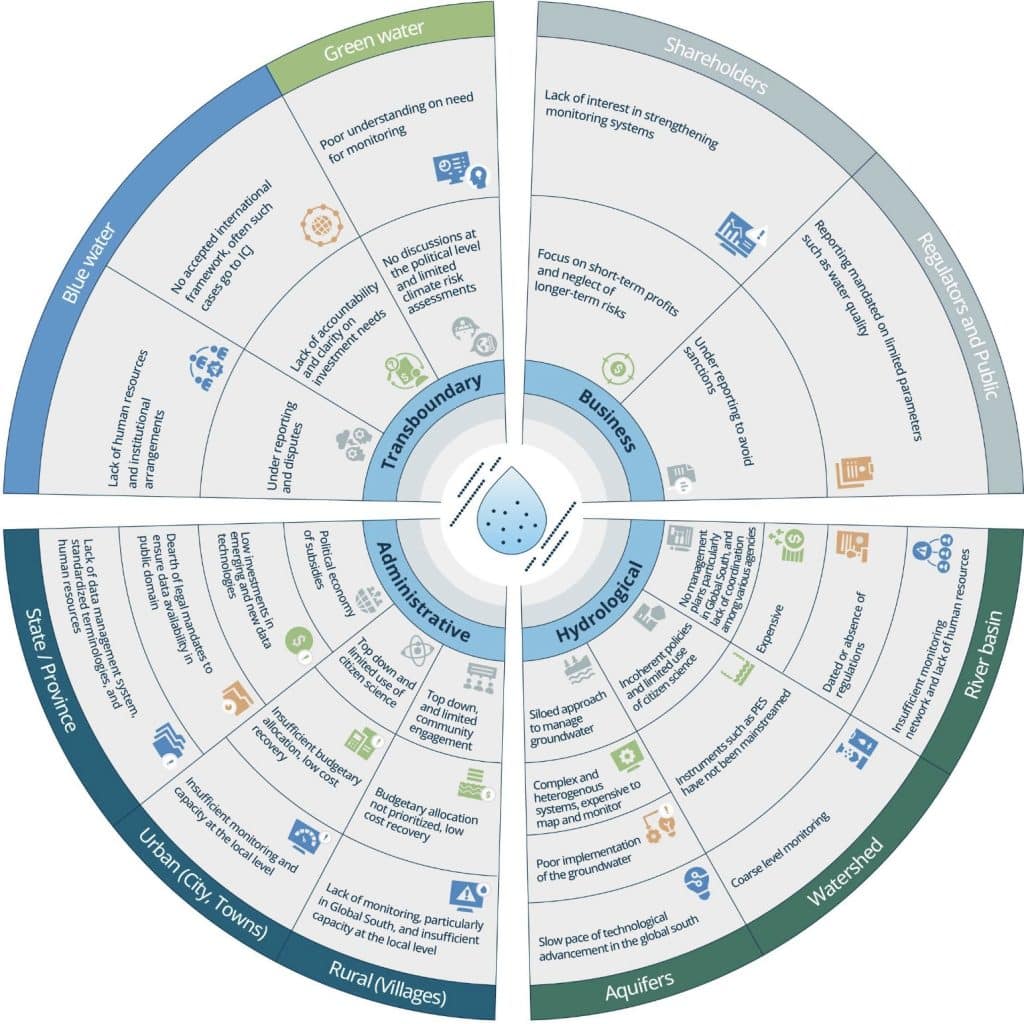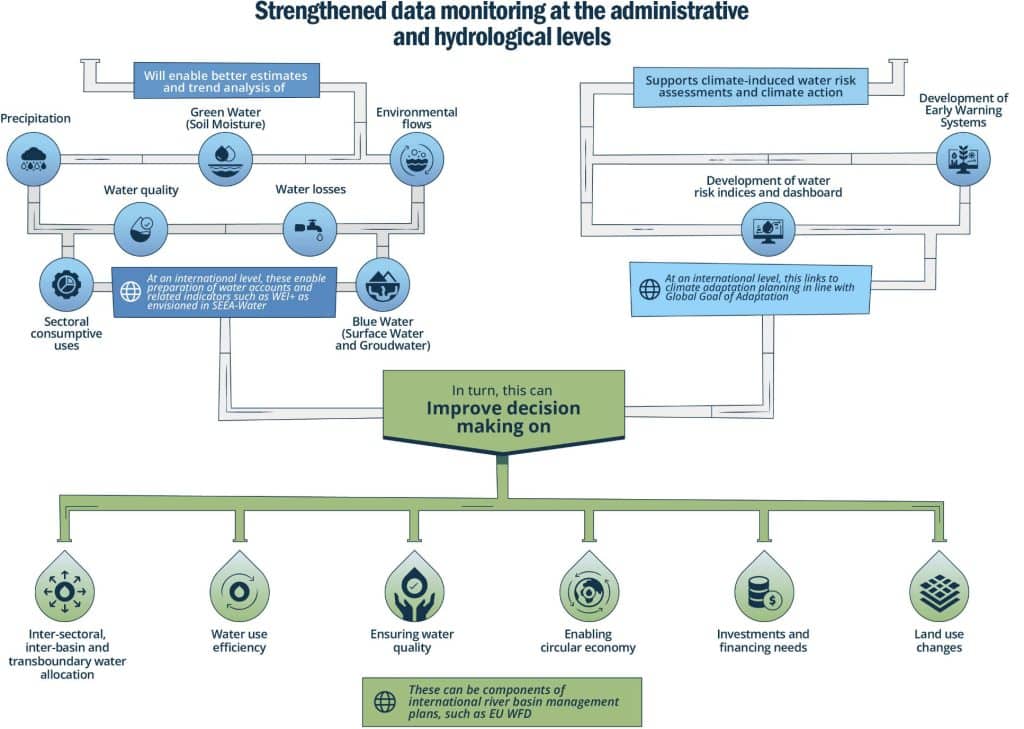Data is critical for transforming how we govern water at every scale from local to global and across sectors, to achieve the 3Es: efficiency, equity and environmental sustainability. However, the data alandscape today has many gaps and is highly fragmented, particularly regarding green water.
We should work towards a global water data infrastructure to enable science-based decision making, recognising and building on data at every level of the hydrological cycle including local and Indigenous knowledge, and empowering all stakeholders including citizens to shape decisions on water. To achieve this, we must strengthen data collection from the local level up, and aim for interoperability of data reporting by promoting harmonisation with recognised measurement and reporting frameworks.
We should generate momentum for corporate water footprint data disclosure through actions by coalitions involving the private sector and civil society organisations. We should expedite work on regulatory standards to mandate water disclosure. Such requirements should aim to provide transparency on the double materiality of water risks posed by companies’ operations – including both their own vulnerabilities to water stresses and disruptions, and the impact of their operations on water resources and land-use changes. We also recommend that water disclosure be integrated in carbon transition plans and be an integral part of sustainability-related disclosures.
Crucially, we must develop pathways to value both blue and green water as natural capital. Though still in its early stages, this initiative is an important enabler for responsible stewardship of freshwater ecosystems, enabling governments and all stakeholders to evaluate the costs and benefits associated with land conversions, conservation, and restoration projects.

